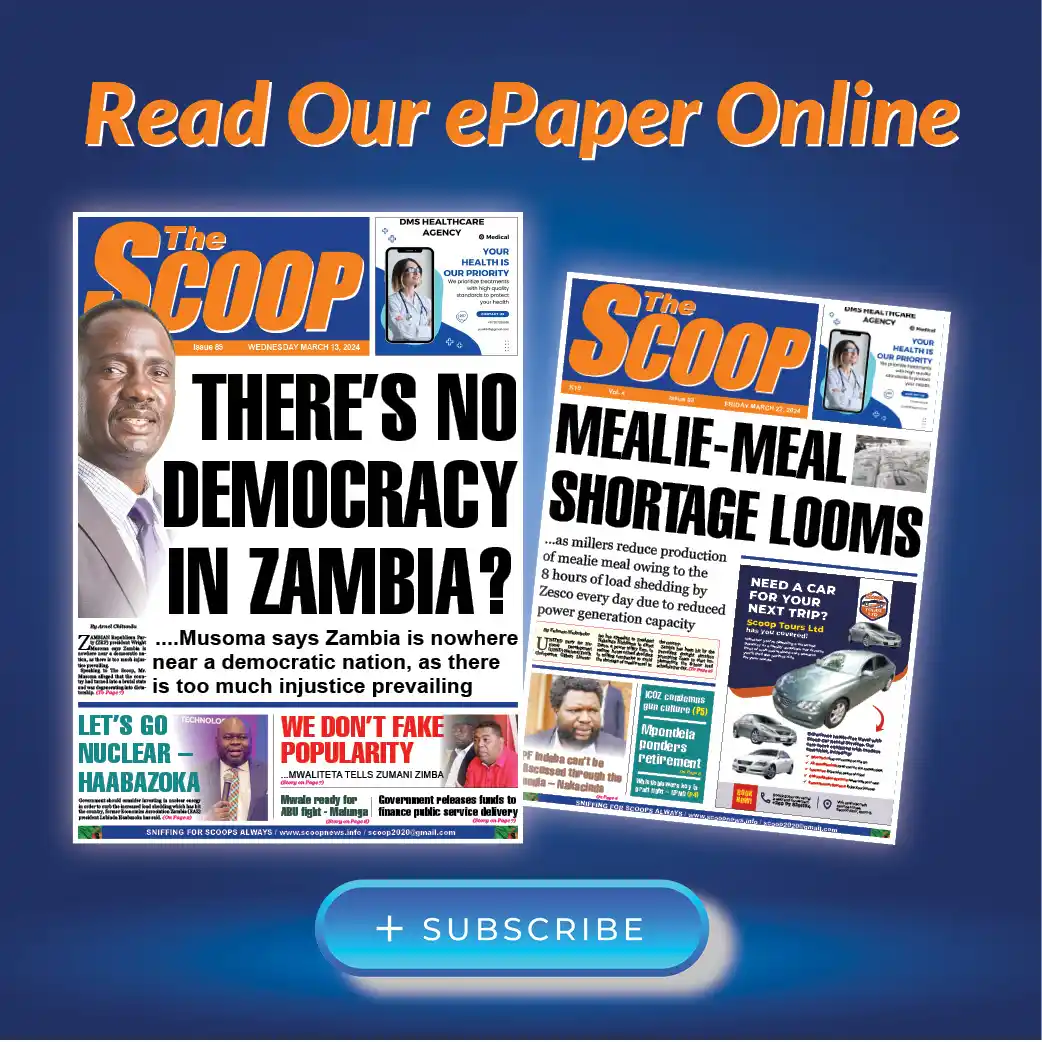BUSINESS FOCUS WITH BALEWA
In the intricate web of economic policies, taxes often stand out as both a necessity and a point of contention. However, their role in driving economic growth and facilitating recovery in times of crisis cannot be overstated. In this week’s Business Focus, we shall discuss how taxes contribute to the vitality and resilience of economies especially for Zambia.
Taxes serve as the lifeblood of government operations, providing the necessary funds for essential services and infrastructure development. From building roads and bridges to funding education and healthcare, tax revenue plays a crucial role in laying the foundation for long-term economic growth.
By adjusting tax rates and implementing incentives, governments can influence consumer behaviour and business decisions. For example, tax breaks for businesses investing in research and development can spur innovation, while tax credits for low-income families can boost consumer spending, driving demand and economic activity.
Education and healthcare are vital components of human capital development, and taxes play a pivotal role in funding these sectors. A well-educated and healthy workforce is essential for productivity and innovation, ultimately contributing to economic growth and competitiveness on the global stage.
Small and medium-sized enterprises (SMEs) are often referred to as the backbone of economies. Taxes can be structured to support SMEs through incentives, exemptions, and simplified tax processes. By easing the tax burden on small businesses, governments can foster entrepreneurship, job creation, and economic resilience at the grassroots level.
During economic downturns, governments can use fiscal policy, including taxation, to stimulate demand and support recovery efforts. For instance, temporary tax cuts or direct cash transfers can provide relief to households and businesses, bolstering spending and confidence in the economy.
Taxes can also be instrumental in reducing income and wealth inequality, which can hinder economic growth and social cohesion. Progressive taxation, where the wealthy pay a higher proportion of their income in taxes, can help redistribute wealth and provide resources for social programs that support the most vulnerable members of society.
While taxes may evoke mixed feelings among citizens, their role in fuelling economic growth and facilitating recovery is undeniable. From funding vital investments to stimulating economic activity and promoting social equity, taxes are a powerful tool in the hands of policymakers. As we navigate the complexities of economic governance, recognizing the importance of fair and effective tax policies is essential for building resilient, inclusive, and prosperous societies.
Zambia just took a big step to make taxes fairer and easier to understand. The Zambia Institute for Policy Analysis and Research (ZIPAR) teamed up with the United States Agency for International Development (USAID) to start something called the Tax Policy Forum. It’s a big deal, and here’s why.
Why it matters…
The Tax Policy Forum aims to make sure taxes in Zambia are fair and help everyone. They want to make it easier for people to understand taxes and have a say in how they’re used.
What they want to do?
Research: They’ll do studies to learn more about taxes and share that knowledge with everyone.
Talking to People: They’ll bring together different groups, like government folks, economists, and business people, to talk about taxes and come up with good ideas.
Teaching Everyone: They’ll help people understand taxes better by holding workshops and other events.
What’s next?
The Forum has a lot of plans, like doing more research, talking to more people, and teaching everyone about taxes. They want to make sure everyone has a fair say in how taxes are used and that taxes help make Zambia a better place for everyone.
Why you should care?
Even if taxes aren’t your favourite topic, they’re important because they affect everyone. The Tax Policy Forum is all about making sure taxes are fair and help everyone in Zambia. So, it’s worth paying attention to and seeing what good things come out of it.
Commenting on the launch Finance minister Dr Situmbeko Musokotwane underlined the importance of the Tax Policy Forum to Zambia’s efforts in attracting investment, promoting entrepreneurship, and fostering economic growth.
The finance minister further stated that the forum would facilitate regular dialogue between the government and private sector players thereby helping in building trust and credibility in the economy.
At the same event, ZIPAR Executive Director Dr. Herrick Mpuku said there was a need to establish and promote a strong foundation and focus on domestic resource mobilization to achieve the nation’s path to economic recovery.
Dr. Mpuku acknowledged the government’s efforts in implementing various tax compliance systems and digital tools, however, pointed out that critical challenges still exist in the tax system that urgently need to be addressed through tax policy reform and a thorough analysis of tax administration.
And USAID Office of Democracy, Rights, and Governance director Meral Karan underscored the importance of public-private dialogue rooted in information sharing and accountability for promoting a thriving democracy and resilient economy.
Therefore, the establishment of the Tax Policy Forum was driven by a clear vision and purpose: to steer informed tax policymaking, facilitate dialogue, and advocate for fair tax policies to enhance our nation’s welfare.
It is also important to note that promoting constructive dialogues between governmental and non-governmental entities is crucial in reshaping just and inclusive tax policies conducive to Zambia’s economic growth.
The Author is an Economist and a multiple international award winning journalist.




























